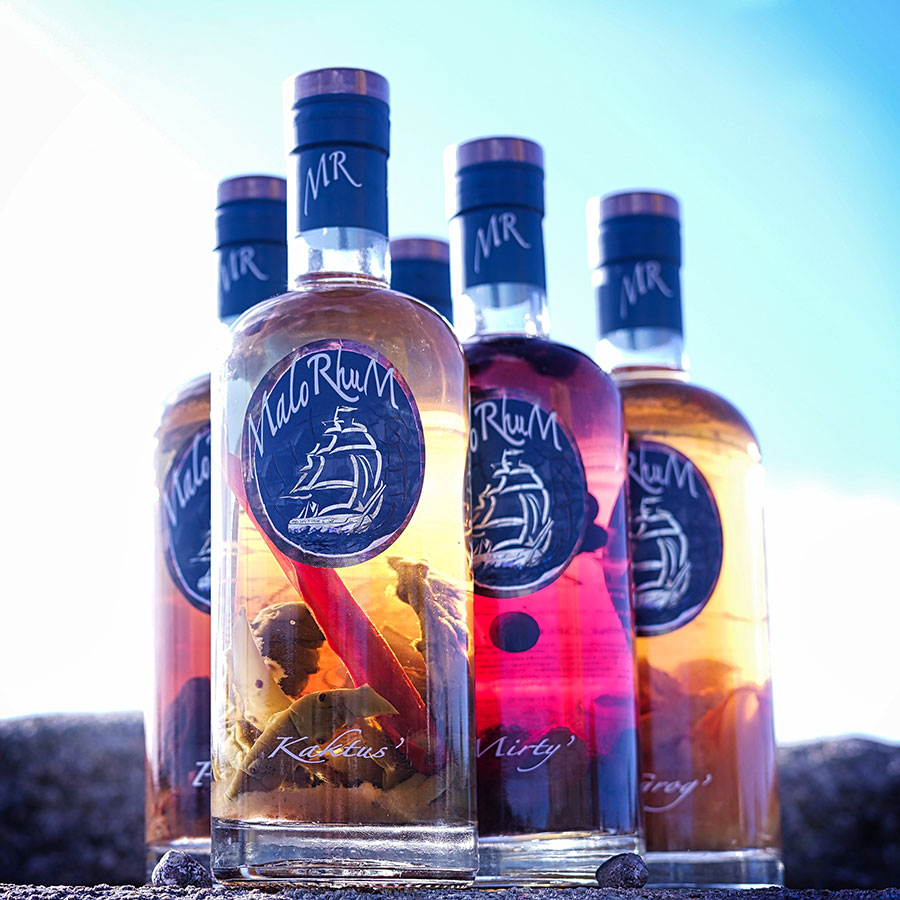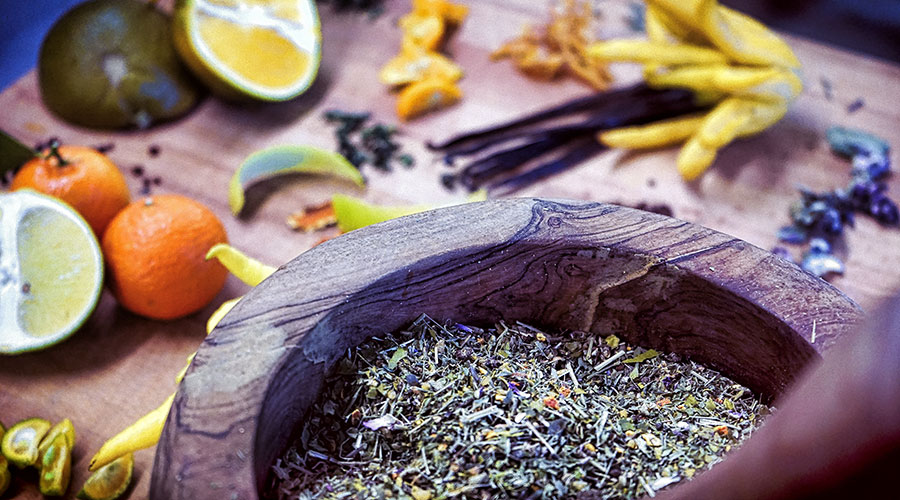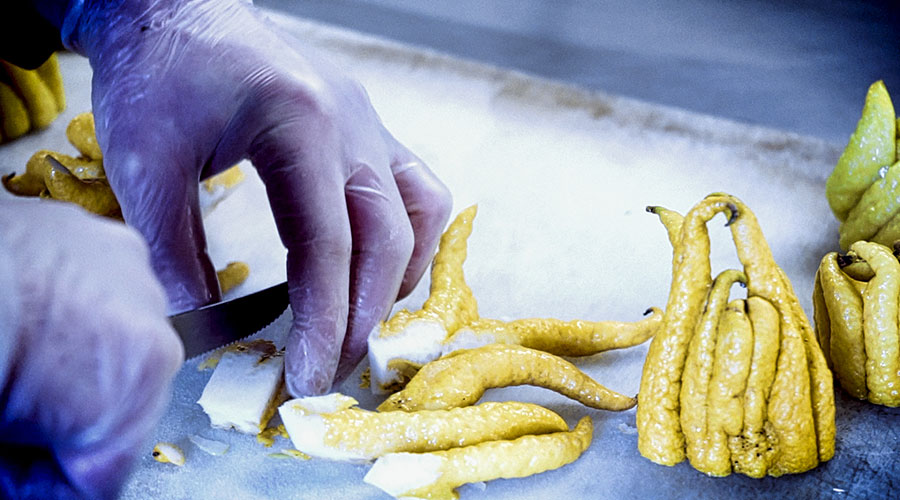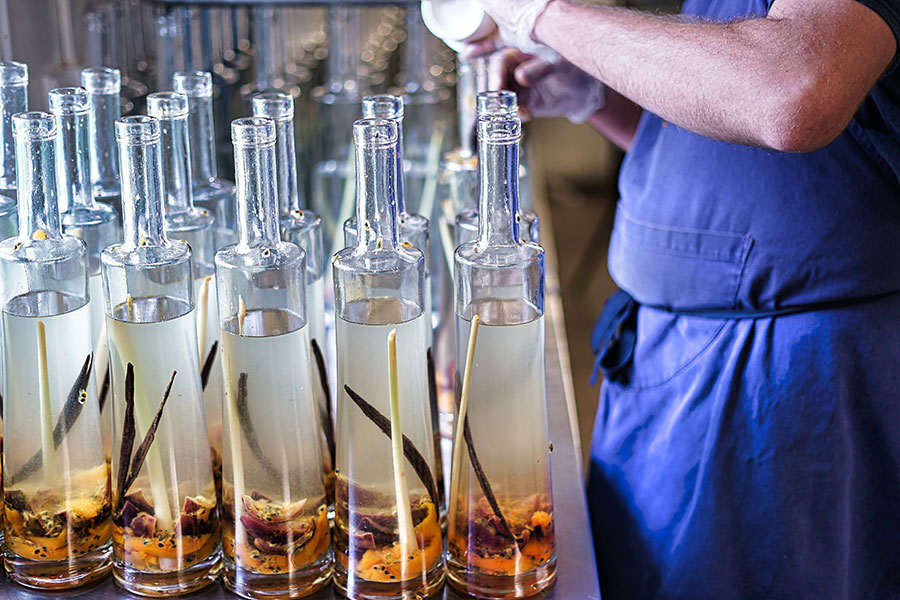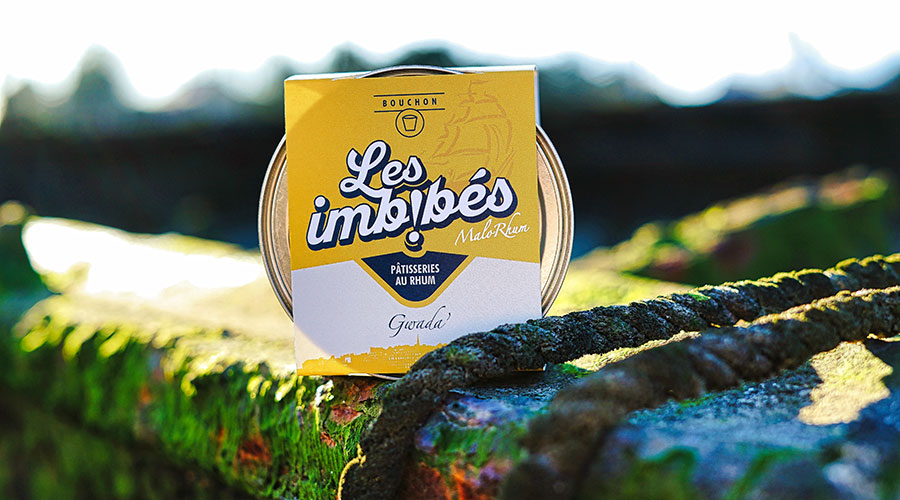They surprised us in 2018 with a “rhum arrangé,” sorry cooked (!) with lobster, and they have been delighting us with their Malouin rum recipes since 2016. For it is in Saint-Malo, a city historically associated with the rum trade and the starting point of the Route du Rhum, that Olivier Cruz and Lucas Fisk prepare their delectable artisanal spirits (everything is done by hand) made from Guadeloupe agricole rum and cooked, flambéed, or reduced elements… Meeting with Olivier Cruz, Malorhum’s co-founder.
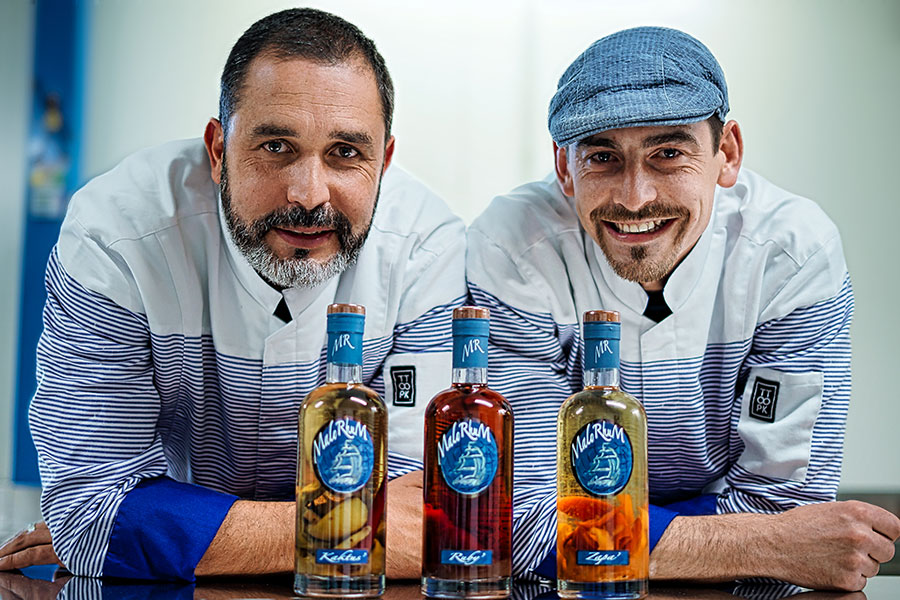
Fabien Humbert: How was the Malorhum adventure born?
Olivier Cruz: We are two founders, Olivier Cruz and Lucas Fisk. At the beginning, we were both entrepreneurs. Lucas was a professional chef and caterer, and I was a humble amateur chef who had founded a network of short food circuits.
I asked Lucas to come and process local products from my network at a trade show. We both came with “rhum arrangés” cooked from our own production without consulting each other. And at the end of the show, we tasted them.
FH: And how was the transition made between a rum that we make between friends and a rum that we market?
OC: We became friends and for a few months we had fun producing “rhum arrangés” for our personal consumption. And then, one thing leading to another, we decided to set up a business project which at the beginning was to remain a secondary activity.
As soon as the project was set up, we had five times more orders than expected and the question of making it our main activity arose. We launched Malorhum in 2016, the success was there and after about ten months we stopped our other activities to focus on this project.
FH: How did you choose the juice that serves as the base for your cooked rums?
Olivier Cruz: I don’t like to give too much information about our company, we are a very small company with six employees, we don’t aim to conquer the market or to become the first in the “rhum arrangé” segment.
So we won’t talk about recipes, number of bottles or the identity of our supplier. But to answer your question, we immediately opted for a very qualitative agricole rum from Guadeloupe.
Why do you ask? Because it is mostly rum from Guadeloupe that we have consumed in our lives as amateurs. Moreover, Saint-Malo has a long history with rum in general and Guadeloupe rum in particular. Even today with the Route du Rhum.
FH: What are the instructions given to the Longueteau distillery?
Olivier Cruz: We look for aromatic rums but without exacerbated notes, which allows us to marry them with our aromatic blocks.
FH : You speak of cooked rums rather than “rhum arrangés”, what is the difference?
Olivier Cruz: We do “arrangés” in the sense that we insert ingredients in the rum. But we talk about cooking because, upstream of the maceration, all the products we are going to use (except the rum which is preserved) are worked, cooked.
FH: Cooked how?
Olivier Cruz: Several techniques will come into play. There is a lot of cooking of course, but also, depending on the recipe, flambéing, reduction, caramelization… We will also play with aromatic plants, spices, different sweetnesses brought by honey, cane syrup, natural apple concentrate…
We even launched a rum with Breton lobster, one of the noblest products of our coasts, in 2018 at the time of the Route du Rhum. It was to show consumers what we were capable of doing by taking this concept of cooked rum to the extreme.
Every 4 or 5 years, we plan to release an alien of the same kind. The next one should be launched in 2023, because Covid slowed us down in the development of this new recipe.
FH: What is the manufacturing process of your cooked rums?
Olivier Cruz: The rum arrives in bulk. The products are peeled, precisely cut since, like all our colleagues, we have the mechanical concern to make them pass the neck of the bottle.
Everything is then sorted and weighed before cooking, and again afterwards. Everything is done bottle by bottle, by hand, there is no maceration tank because it is done in the bottle. It is thus a very artisanal process.
For example, for a pineapple arranged rum, in its traditional recipe, we take a pineapple, we cut it up, we dip it in a bottle of rum with sugar and we wait for several months for the aromas to develop.
Its equivalent at home, Gwada (pineapple, avocado, banana, vanilla, lime zest and spice mix), is made differently since we develop a complete aromatic block beforehand which is then separated into portions, to be inserted bottle by bottle.
The easiest recipes to make for us require four times more handling than the classic “rhum arrangés”, and for lobster we use twelve times more.
FH: How long do your prepared rums last?
Olivier Cruz: The oldest bottles we kept are the first ones we made with Lucas, so they are at least 6 years old. The advantage of cooking the elements is to avoid as much as possible the oxidation in the rum after a few months, as it is the case with the fresh fruits not cooked.
So we can keep the bottles several years without problems. Another advantage is that the aromas appear much faster. Despite this, we wait a minimum of 5 or 6 months before sending our products for sale, so that the aromas blend with the rum.
FH: Where can we find your products?
Olivier Cruz: We supply almost exclusively to wine merchants and delicatessens, which represent several hundred retailers in France, and a very small number to the on-trade. We don’t sell to mass retailers and we won’t.
I will repeat what I said at the beginning of the interview: we do not intend to cover all of France with our products. We follow our own path, we don’t want to walk on the path of others, hoping that they don’t get in the way of ours.
FH: Do you, specifically, have competitors and/or colleagues in the cooked rums segment?
Olivier Cruz: To my knowledge, no. There is an interest around the “rhum arrangés” with a lot of brands that are created and products that come out, but it does not concern the cooked rum for the time being. However, it is possible that it will occur one day. That’s the law of the market.
FH : How will the future of Malorhum be written?
Olivier Cruz : With new recipes, of course, the development of “imbibés”, which are pastry creations married to our cooked rums, or the multiplication of collaborations and customizations of products like the one made for Christian de Montaguère for next Christmas.
And if all goes well, in the spring of 2022 we will release the first reference of a new range, but it is still too early to talk about it!

